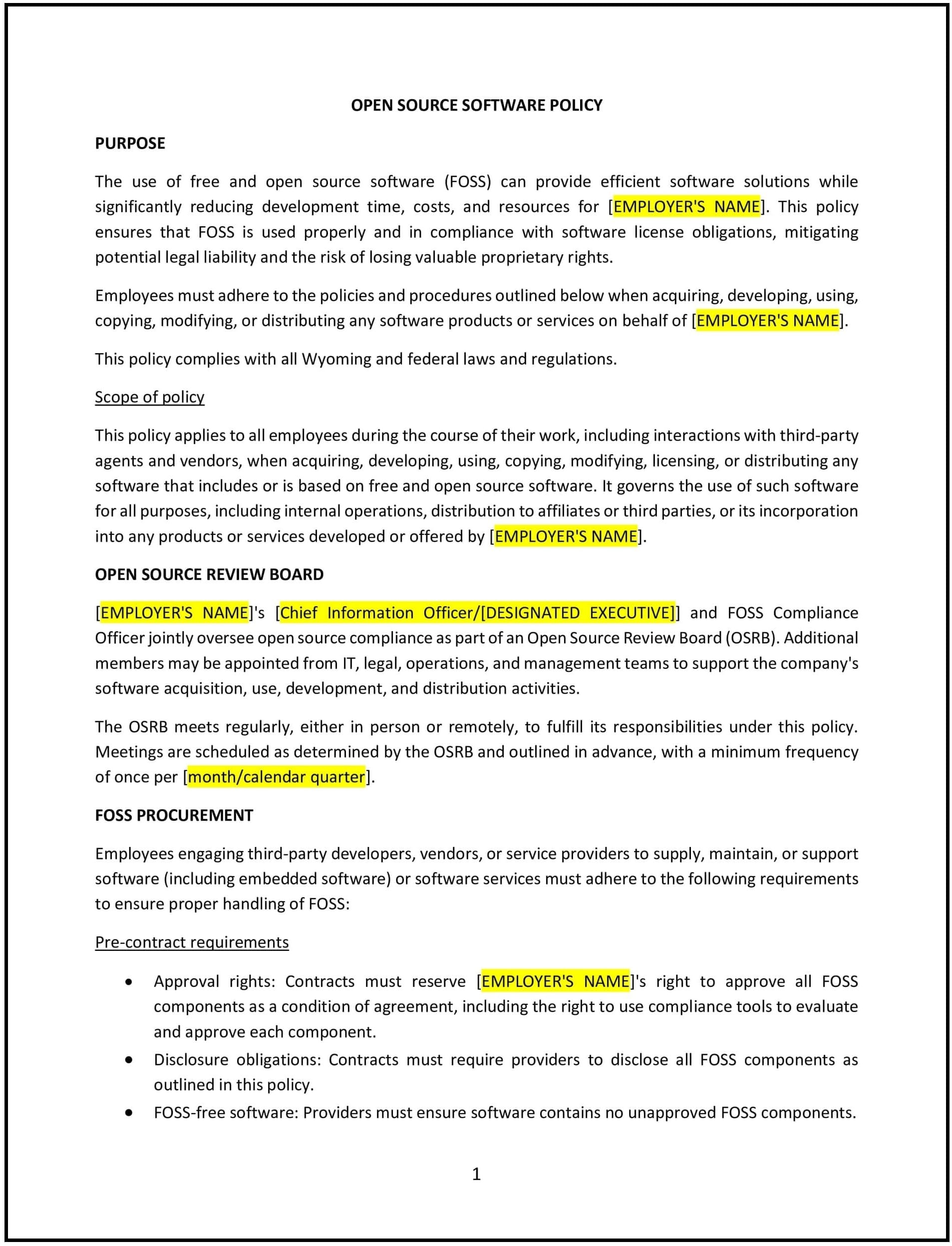Open source software policy (Wyoming): Free template
Got contracts to review? While you're here for policies, let Cobrief make contract review effortless—start your free review now.

Customize this template for free
Open source software policy (Wyoming)
In Wyoming, an open source software policy provides guidelines for the use, development, and distribution of open source software within an organization. This policy supports compliance with licensing requirements, promotes security, and supports ethical software usage.
This policy outlines procedures for evaluating, adopting, and managing open source software, helping businesses leverage its benefits while minimizing risks.
How to use this open source software policy (Wyoming)
- Define open source usage: Clearly specify how open source software may be used within the organization, including approved applications and development practices.
- Establish evaluation criteria: Include steps for assessing open source software before adoption, such as reviewing licensing terms, security risks, and compatibility with existing systems.
- Outline contribution guidelines: Provide procedures for employees contributing to open source projects, ensuring alignment with company policies and intellectual property rights.
- Implement compliance measures: Detail steps for ensuring compliance with open source licenses, such as documenting modifications and adhering to attribution requirements.
- Support compliance: Align the policy with Wyoming business regulations and industry standards to ensure ethical and legal software usage.
Benefits of using an open source software policy (Wyoming)
An open source software policy provides several advantages for Wyoming businesses:
- Promotes compliance: Supports adherence to licensing terms and reduces the risk of legal disputes.
- Enhances security: Establishes procedures for assessing and mitigating security risks associated with open source software.
- Encourages innovation: Supports the responsible adoption of open source tools to drive efficiency and creativity.
- Protects intellectual property: Provides clear guidelines for handling proprietary and open source code to prevent conflicts.
- Adapts to industry needs: Reflects Wyoming’s unique business environment and technology landscape.
Tips for using an open source software policy (Wyoming)
- Train employees: Provide training on the responsible use of open source software, including licensing compliance and security best practices.
- Maintain documentation: Keep detailed records of open source software usage, including licenses, modifications, and contributions.
- Monitor compliance: Regularly review open source usage to ensure adherence to the policy and identify potential risks.
- Encourage collaboration: Support employees participating in open source communities while aligning their contributions with organizational goals.
- Review periodically: Update the policy to reflect changes in technology, licensing terms, or business needs.